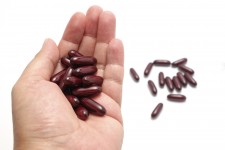What if a complete stranger's poop in a pill could save your life? That's the premise behind the non-profit organization OpenBiome's latest development. If you are not aware, a bacterium called Clostridium difficile (C. diff) is responsible for approximately half a million infections among patients within the US in 2011. According to the CDC, 29,000 died within 30 days of the diagnosis of C. difficile infection. Compounding the issue is the emergence of antibiotic resistant forms of C. diff within recent years.
With the invention of fecal microbiota transplantation (FMT), using colonoscopy, enema or a tube inserted via the nose, a healthy person's feces can be placed within the colon of a C. diff infected patient. Most people are grossed out by the concept but the objective of a fecal transplant is to restore a normal, functional balance of colonic microbial flora. And it works. Previous studies have shown fecal transplant by colonoscopy to be 90 percent effective in curing C. diff infection. By comparison, antibiotics are less than 40 percent effective.
OpenBiome, the first to create a stool bank within the US, has taken fecal transplant a step further with the creation of the FMT Capsule G3 - yes, it is a capsule capable of holding poop, while ensuring that the integrity of the microbial flora within the poop was not compromised. It sounds even grosser than traditional fecal transplant but a fecal fix can save your life, and this "poop in a pill", with no colonoscopy or otherwise invasive procedure required. It's not just one pill, though. The recommendation is thirty capsules to be taken in the presence of a physician.
Results should be noticeable rapidly, but what if you swallow the poopy pills and it doesn't change much? It means another 30 capsules on the second day. While that sounds like a hard pill to swallow, literally and figuratively, studies investigating the efficacy of the capsules thus far are noteworthy. Pooling results from three peer-reviewed journal articles, the first time cure rate was found to be 67%. This figure increased to 86% for those receiving a second treatment across the three studies.
Of course the clinically preferred alternative of the FMT is ideal. But OpenBiome states that its repeat dose is suggested for specific cases where clinicians believe the risks involved with attempting colonoscopy in a particular patient would be higher than the benefit of the FMT. Though the pill has not been approved by the FDA, it remains available largely due to the lack of alternatives available for treating C diff.



